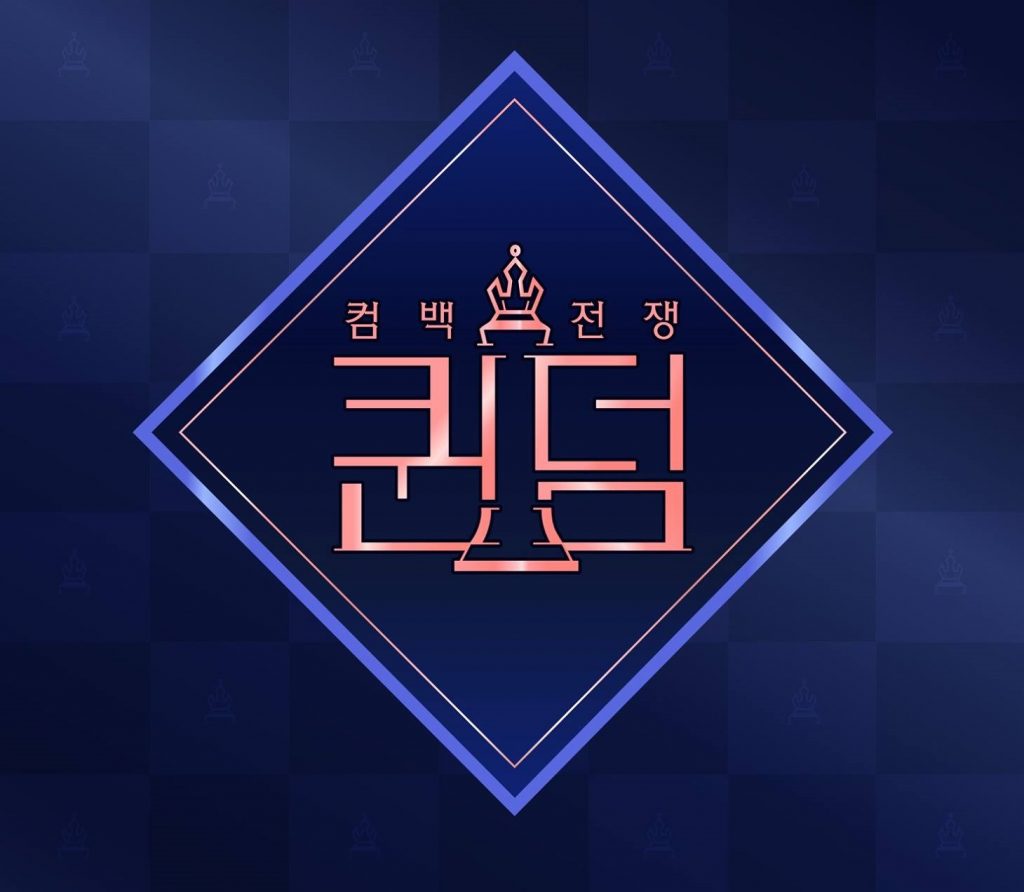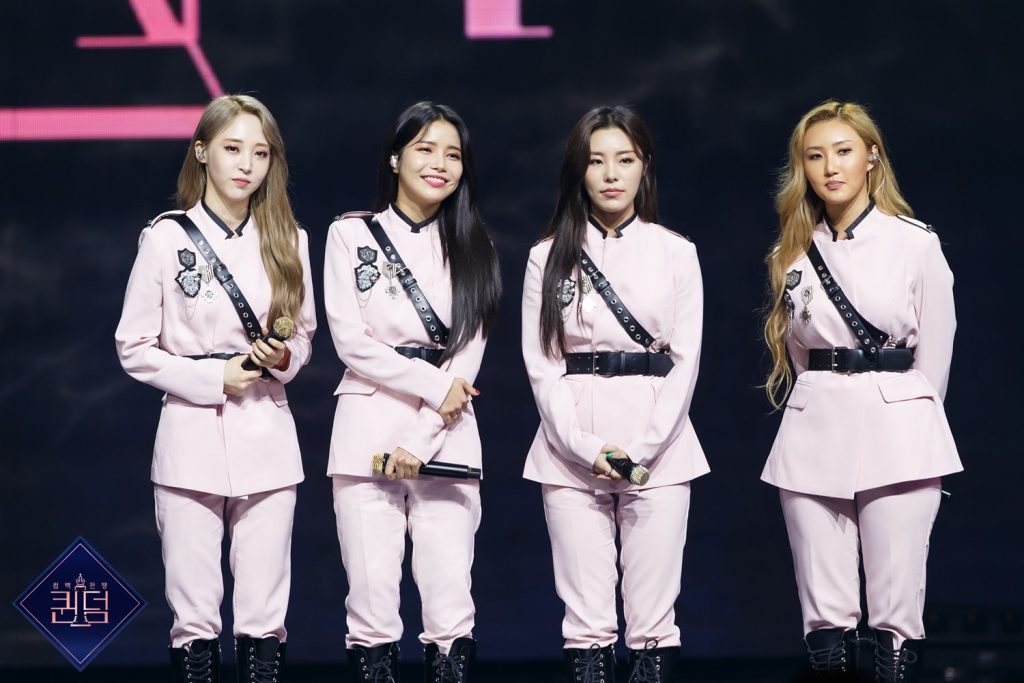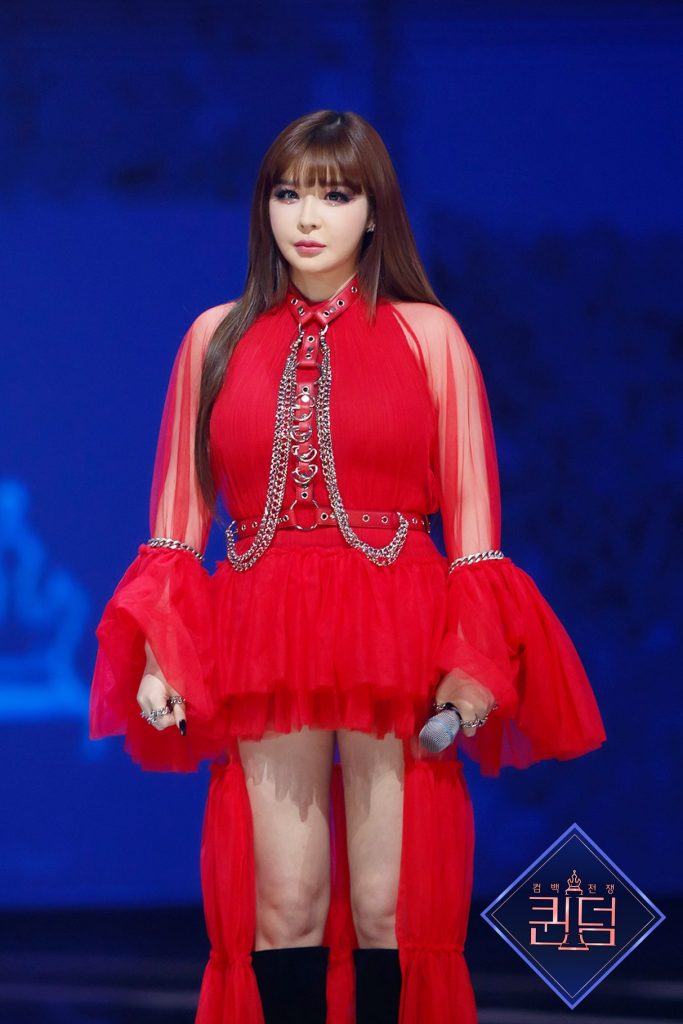
Following the controversial fourth season of Produce 101 and lacklustre eighth season of Show Me The Money, things were starting to look bleak for Mnet. With a loss of trust and general interest in these exhausted franchises, both viewer expectations and production budgets were kept low for their next programme, Queendom, a new show headlining the broadcaster’s autumn offering. However, Queendom’s simple concept shines through its poor execution, producing rewatchable highlights that have raked in millions of YouTube views and a format well worth pursuing into further seasons.
Mnet’s latest experiment in idol reality TV comes in the form of a head-on, no-holds-barred competition between six popular girl groups, to establish once and for all the “best” girl group of them all. The line-up is surprisingly diverse, spanning several K-pop generations and styles – (G)I-dle, Lovelyz, Oh My Girl, Mamamoo, AOA and soloist Park Bom were all listed to participate.

The competition itself is fairly simple, with four rounds centred around answering the questions that generations of multi-fandom K-pop fans have wondered to themselves: What do my favourite groups think about each other? What would it be like if they sang each other’s songs? What if they collaborated? Who would win if they all had a comeback on the same day?
Presumably, these were the questions that inspired Mnet executives to come up with the show, and it’s a credit to their industry muscle that they were able to bring it to fruition. Groups tend to stay opinionless (or at least as neutral as possible) on anything that could potentially cause them backlash, and that includes other groups – there would be little to gain and a lot to lose from participating in a show that directly pits them against their rivals (and their fandoms).

Still, that’s what Mnet have managed to convince these six groups to do, enticing them with opportunities to perform on prime-time TV, improve their public image and awareness, network with other groups and – as the overall prize – a chance to hold a live comeback show normally reserved for extremely popular (male) groups.
Ten weeks on, despite the potential for PR disasters, everyone (including Mnet) has come out of the show better for it. Each group took the opportunity to try something new, even if it meant adopting concepts that their fans weren’t used to. Meanwhile, the scale, quality and attention to detail of each stage meant that almost every episode offered performances worthy of an end-of-year award show.
(G)I-dle in particular shined for their powerful, wildly creative and uninhibited performances, diving head-first into dark concepts that other groups would shy away from. Their performance of “Latata” established them as rookies not to be underestimated, while their remix of B-side “Put It Straight” perfectly executed its Halloween concept from beginning to end.
While they stumbled with their lacklustre cover of 2NE1’s “Fire”, their final comeback song, “Lion”, was so visually and conceptually rich that it was a surprise they didn’t come closer to winning. Along with the fact that Soyeon produced each song and orchestrated each performance, (G)I-dle’s stint on Queendom once again highlights just how artistically mature beyond their years the group is, and how much potential they have.
Lovelyz and Oh My Girl also took the opportunity to challenge themselves, having been limited for much of their careers to the standard airy, feminine style associated with most girl groups. Lovelyz’ Yein and Oh My Girl’s YooA shined in their solo dance performances, showcasing a beautiful contemporary dance and sharp Michael Jackson tribute respectively.
Oh My Girl, in particular, gained a lot of popularity and recognition through the show, winning two rounds and coming second overall. Through their reimagining of Lovelyz’ “Destiny” and their final comeback song, “Guerilla”, it’s easy to see why – ample vocal ability and expressive, dynamic performances prove that they’re no rookies, and that they’re capable of more mature, complex concepts than they’ve been given so far.
For AOA and Park Bom, Queendom was a place of rejuvenation and rediscovery. Having been fairly inactive in the last few years, as well as suffering member losses / disbandments, both were drifting out of the public eye and in need of a boost. Standing on stage with fewer people than before (and in Bom’s case, alone) must have been intimidating, but they rose to the challenge impressively.
AOA’s five-member version of “Miniskirt” recalled their heyday, but with a mature, relaxed confidence that shows they now own the sexy concept they were pushed to do before. Their cover of Mamamoo’s “Egotistic” reinterpreted the song entirely in AOA’s upbeat, charismatic style, and indeed established that they have a signature style – an achievement for any group. While their revisiting of cutesy AOA Cream song “I’m Jelly Baby” somewhat backfired, their comeback stage, “Sorry”, opted for a more cool and chic concept and song that matched their now more mature style.
Park Bom’s journey on Queendom was punctuated with moments of sadness, as the only soloist among six noisy groups. Performing ballads at almost every stage, they culminated in the heart-breaking and powerful final song, “Wanna Go Back”. Lamenting an inability to turn back time and go back to better times, and with thinly veiled references to 2NE1’s disbandment, the song will hit particularly hard for fans of 2NE1 who experienced their decline as it occurred. Despite some deterioration in her vocals since then, Park Bom’s performances were often genuinely moving, even if they didn’t win.
Finally, Mamamoo were the undoubted winners of the show, performing solidly throughout and with an ease that only seasoned artists have. Having remained consistently in at least second place for each round of the show, it was no surprise when Mamamoo won the final, though it was surprising they didn’t win first place more often.
From the very beginning, they performed like it was their own concert, smiling and interacting with the audience with no concern for their ranking. Their vocals were by far the strongest and most stable of all the contestants, nowhere more clear than on their stunning performance of “I Miss You” – reflecting on their past selves, this rendition felt even more powerful and heartfelt than the original, and it remains one of the best performances of the show, even without any fancy stage effects, gimmicks or choreographies.
Overall, Queendom has been an unexpected success for Mnet. Judging by the Thursday airing slot, low-budget sets, modest ratings, and often boring editing, it seems like neither the broadcaster nor audiences expected much of the show. However, through consistently high-quality performances, made shareable through YouTube, Queendom has gained attention for the big names in its line-up and for entertaining crossovers between groups.
In particular, while a few instances of Mnet’s infamous “evil editing” appeared in the beginning, these were soon drowned out by the wholesome and heart-warming camaraderie that grew between the participants. This, along with the opportunity to see established idols (and not trainees) working hard and excelling, helped make Queendom a welcome celebration of girl groups, rather than the cut-throat competition it had threatened to be.
(YouTube [1]. Images via Mnet.)


